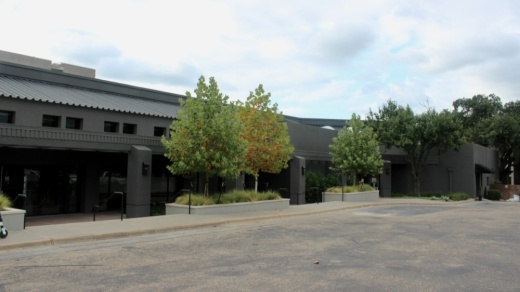The redevelopment of 200 Academy Drive, the Austin Opera House building now home to Arlyn Studios, first came before the commission last month. A proposal from property owner Spearhead Academy and Weiss Architecture would see new restaurant, retail and office space added alongside a 120-unit housing development, and the old opera house reopened as a mid-sized music venue and music history museum.
“This project represents an amazing opportunity ... to help preserve a special and irreplaceable piece of Austin’s music history, and help make Austin a more viable market for our local musicians to build their careers," said Will Bridges, co-owner and operator of Antone's Nightclub, who spoke in favor of the development.
The project plans call for a 17,500-square-foot, 1,200-capacity venue on the property, a scope that could be reduced as the project moves forward. Both neighbors and planning commissioners have expressed concerns that the property—located between denser South Congress Avenue and Music Lane developments to the west and residential neighborhood to the east—may overburden the existing community.
Neighborhood representative Laura Toups said she has issues with a music venue and cocktail lounge entering the area at all given added vehicle and foot traffic disruption, especially later at night. She also noted that neighbors would likely support a plan consisting only of housing and commercial space. Resident Brian Beattie also said he worries about the project's potential to attract "masses of intoxicated people" and a nightlife atmosphere like that of Sixth Street to a quieter residential area.
Richard Weiss of Weiss Architecture said the project is designed to have its multifamily housing, courtyard and underground parking garage act as a "buffer" between existing single-family homes and the revamped venue space. He also said the redevelopment would include a new pedestrian walkway to direct foot traffic west down Music Lane and a hard turn out of the garage to keep cars from driving through the residential neighborhood.
While planners have discussed altering the scope of the project with neighbors, in the end Weiss said they elected not to change their ask for size—a 10,000-square-foot auditorium with 7,500 square feet of lobby and backstage space.
"We’re struggling with what percentage of history to sacrifice," Weiss said.
The size issue also divided the planning commission. Some members expressed support for filling a "missing middle" in Austin's live music scene without cutting into the historic building, while also bringing more housing off a major corridor. Others, including Chair Todd Shaw, said the music hall as proposed is simply too large regardless of any other considerations.
“I really do think it’s in the wrong place," Shaw said.
A final vote by the commission sent the case to the next step in its development process at the requested venue size. However, several commissioners said they will likely seek to limit square footage and hold the developers to a traffic reduction strategy when they review the project again during site planning.





